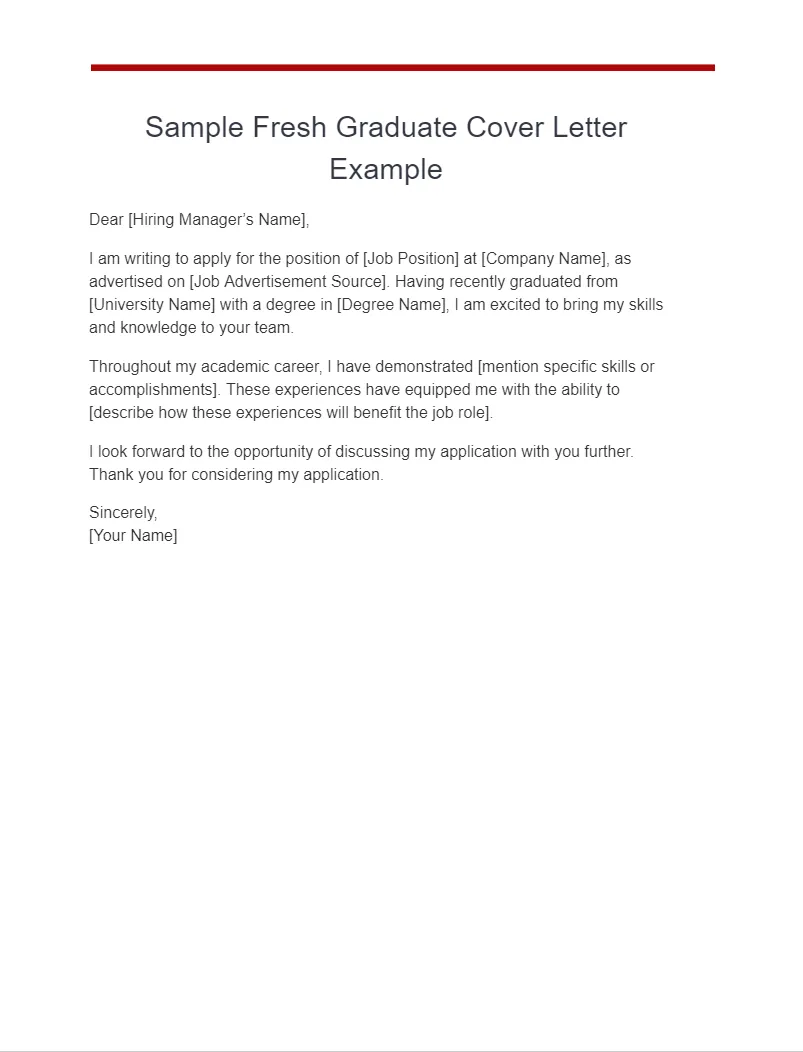Why a Recent Grad Cover Letter Matters
As a recent graduate, you might be tempted to skip the cover letter and just rely on your resume. However, a well-crafted recent grad cover letter is your secret weapon in the job application process. It’s your opportunity to stand out from the crowd, showcase your personality, and tell a compelling story that your resume alone can’t convey. Unlike experienced professionals who have extensive work histories, recent grads often lack direct experience. This is where your cover letter becomes crucial. It allows you to highlight your potential, demonstrate your enthusiasm, and explain how your skills and experiences align with the job requirements. A strong cover letter can significantly increase your chances of landing an interview and ultimately, the job. It shows that you’re serious about the opportunity and have taken the time to tailor your application.
Highlighting Your Achievements
Since you might not have a long list of job accomplishments, focus on your achievements in other areas. Think about academic successes, projects, extracurricular activities, and volunteer experiences. Identify the skills you developed and the results you achieved in these roles. For instance, if you were the project lead for a student organization, highlight how you successfully managed a team, met deadlines, and delivered a project that met or exceeded its goals. When highlighting your achievements, be specific and provide concrete examples. This will demonstrate your capabilities and show the hiring manager what you can bring to the table.
Quantify Your Accomplishments
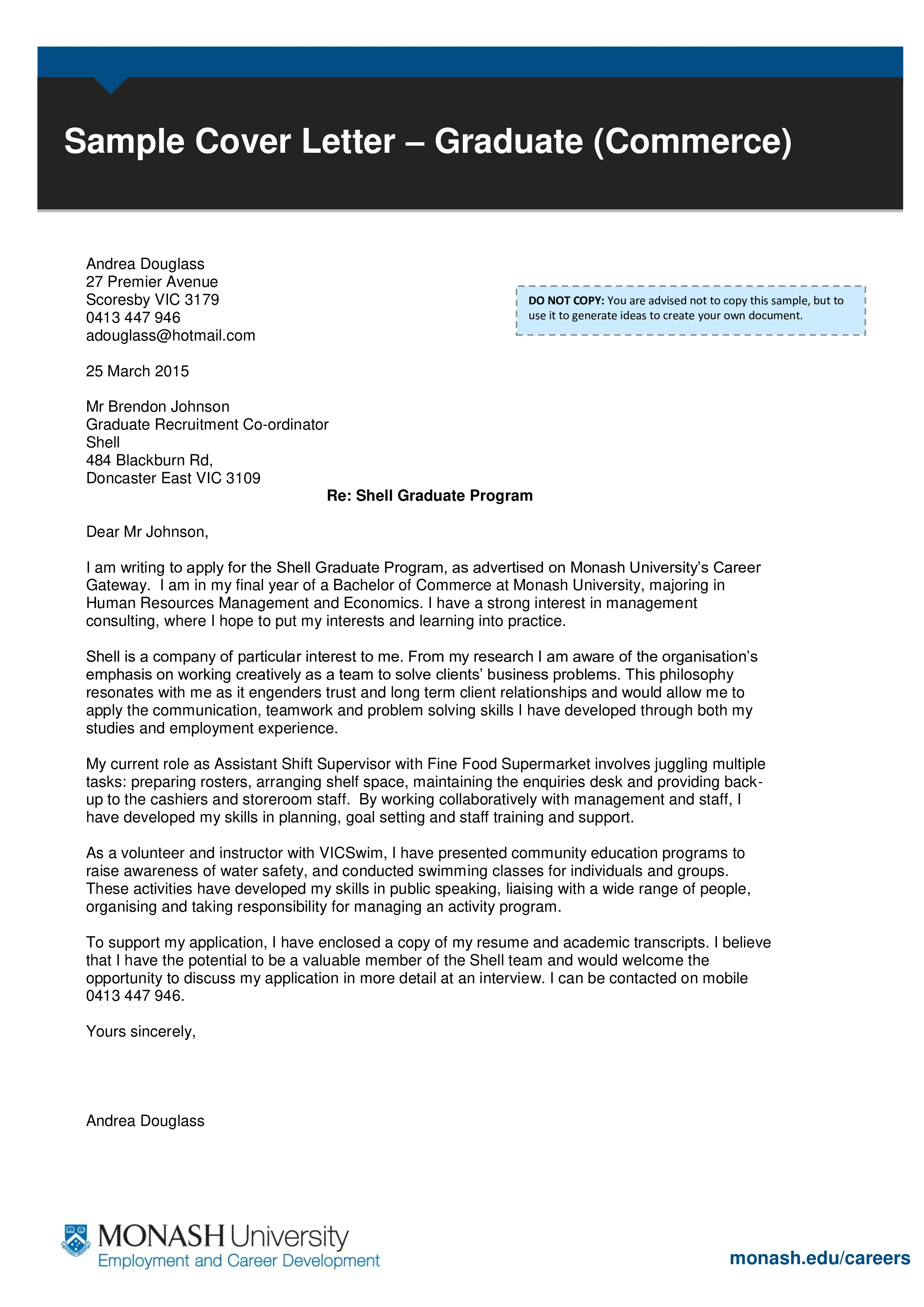
Whenever possible, quantify your achievements. Instead of saying you ‘improved’ something, say you ‘increased sales by 15%’ or ‘reduced project completion time by 10%’. Numbers make your accomplishments more tangible and impressive. Even in non-work-related experiences, try to quantify your achievements. For example, if you organized a fundraising event, mention how much money you raised or how many people attended. Quantifying your achievements adds credibility to your claims and helps the hiring manager understand the impact you’ve made. It shows that you’re results-oriented and capable of making a difference in the workplace.
Focus on Transferable Skills
Transferable skills are skills you’ve gained in one situation that can be applied to another. As a recent grad, you should emphasize these skills, as they are the foundation of your professional capabilities. Examples include communication, teamwork, problem-solving, leadership, time management, and adaptability. Provide examples of how you’ve used these skills in your academic projects, internships, volunteer work, or extracurricular activities. For instance, if you worked on a group project, highlight your communication skills by explaining how you effectively collaborated with your team members, resolved conflicts, and delivered a successful outcome. Highlighting transferable skills shows the hiring manager that you can perform in a professional setting, even without direct industry experience.
Researching the Company
Before you start writing, do your research. Understanding the company’s values, mission, and recent initiatives will help you tailor your cover letter to their specific needs. Visit their website, read industry news, and check their social media profiles. Identify what the company is looking for in its employees and tailor your letter to address those needs. Referencing specific projects, values, or goals in your cover letter demonstrates your genuine interest and shows that you’ve taken the time to learn about the company. This will make your application stand out from the generic ones and increase your chances of getting noticed.
Tailoring Your Letter
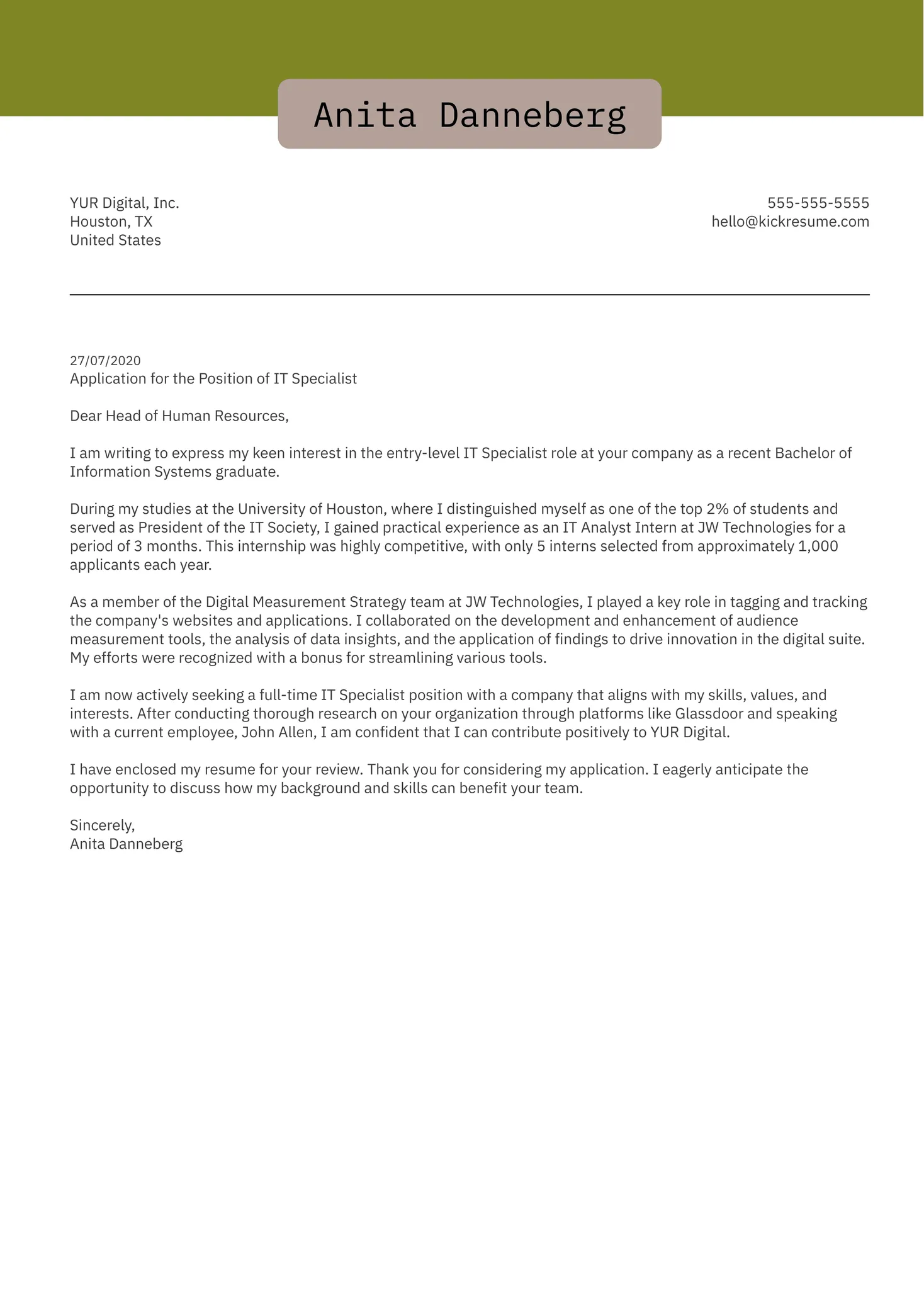
Generic cover letters are a major turn-off for hiring managers. Tailor each letter to the specific job and company. Use keywords from the job description and explain how your skills and experiences align with the requirements. Instead of just stating that you have the necessary skills, provide examples that demonstrate your abilities. For example, if the job description mentions the need for strong communication skills, describe a situation where you effectively communicated with a diverse team or presented complex information in a clear and concise manner. Tailoring your letter shows that you are genuinely interested in the position and have taken the time to understand the company’s needs.
Addressing the Hiring Manager
Whenever possible, address your cover letter to a specific person, ideally the hiring manager or the person who will be reviewing applications. Finding the name of the hiring manager demonstrates initiative and shows you are committed to the role. You can usually find this information on the company website, LinkedIn, or by contacting the HR department. If you can’t find a specific name, use a professional greeting like ‘Dear Hiring Manager’ or ‘Dear [Department Name] Team’. Avoid generic greetings like ‘To Whom It May Concern’, which can make your letter seem less personal and less engaging.
Showcasing Your Enthusiasm
Express your enthusiasm for the position and the company throughout your cover letter. This is your chance to show the hiring manager why you’re excited about the opportunity. Explain what specifically interests you about the role, the company’s mission, or its products or services. Show that you’ve done your research and have a genuine interest in contributing to their success. Be confident but professional, and avoid sounding overly eager or desperate. Expressing your enthusiasm will make your application more memorable and increase your chances of getting an interview.
Expressing Your Interest
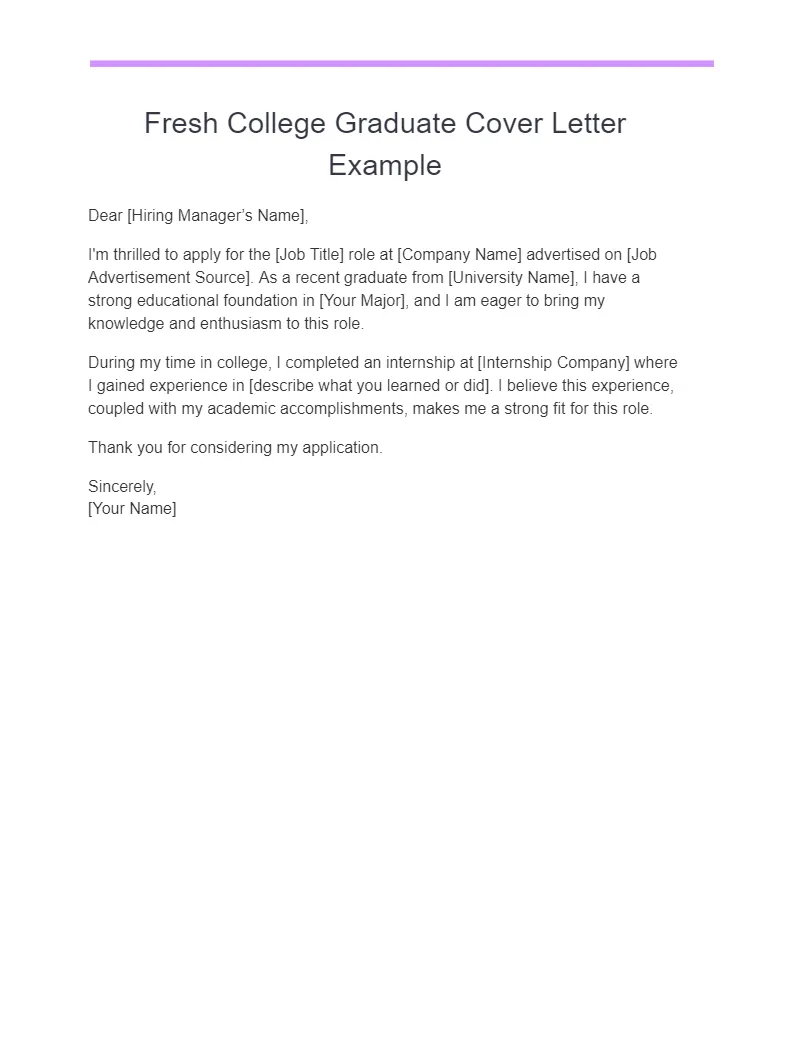
In your cover letter, explicitly state your interest in the position and the company. Instead of simply saying ‘I am interested in this position,’ provide a brief explanation of why you are interested. Connect your skills and experiences to the job requirements and explain how you can contribute to the company’s goals. Mention specific aspects of the role or the company that excite you and make you feel passionate about the opportunity. This demonstrates to the hiring manager that you are not just applying for any job, but that you have a genuine interest in this specific role and company.
Demonstrating Your Knowledge
Demonstrate your knowledge of the industry, the company, and the specific role. This shows that you are well-informed and have taken the time to learn about the opportunity. Reference industry trends, the company’s recent achievements, or specific projects that resonate with you. Highlight your understanding of the challenges and opportunities within the role and explain how your skills and experiences can help the company succeed. This demonstrates your intellectual curiosity and shows the hiring manager that you are not just looking for a job, but are also eager to learn and grow.
Formatting and Proofreading
The appearance of your cover letter is as important as its content. Ensure your letter is well-formatted, easy to read, and free of errors. Use a professional font, such as Times New Roman, Arial, or Calibri, and maintain a consistent font size throughout the document. Keep the formatting clean and simple, with clear headings, concise paragraphs, and appropriate spacing. A well-formatted cover letter shows that you pay attention to detail and take pride in your work. Poor formatting or a cluttered layout can make your letter difficult to read and create a negative impression.
Choosing the Right Font
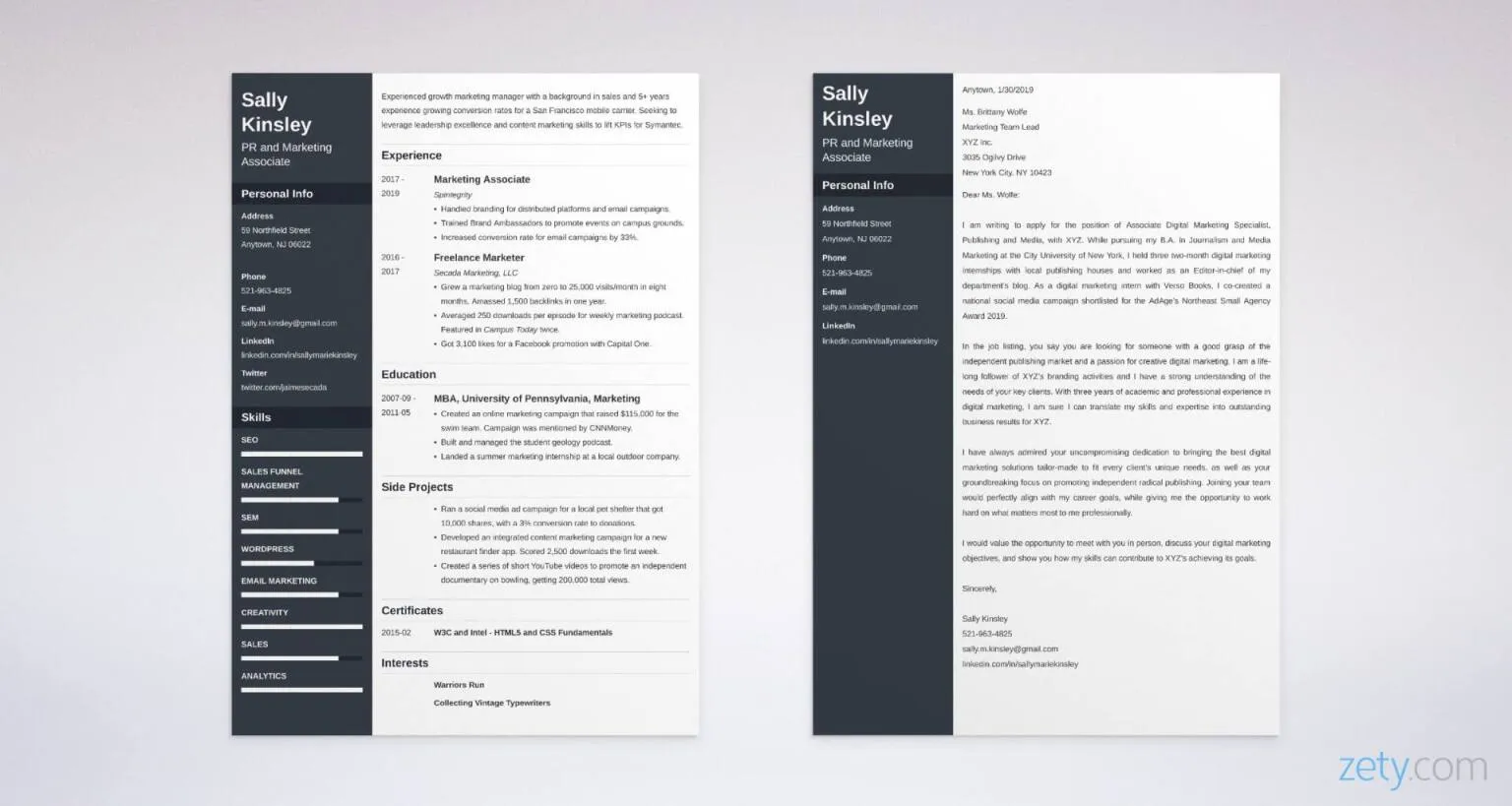
The font you choose can significantly impact the overall impression of your cover letter. Opt for a professional, easy-to-read font that reflects your attention to detail and professionalism. Some recommended fonts include Times New Roman, Arial, Calibri, and Helvetica. Avoid using overly stylized or decorative fonts, as they can make your letter appear unprofessional and difficult to read. Maintain a consistent font size and style throughout the document to ensure a polished and professional look. Selecting the right font demonstrates that you pay attention to detail and are serious about making a good impression.
Proofreading for Errors
Proofreading is essential. Errors in grammar, spelling, or punctuation can undermine your credibility and make you appear careless. Before submitting your cover letter, carefully proofread it multiple times, checking for any mistakes. Consider asking a friend, family member, or career counselor to review your letter as well. A fresh pair of eyes can often catch errors that you might have missed. Proofreading demonstrates that you pay attention to detail and take pride in your work. Ensuring your cover letter is free of errors is a crucial step in making a positive impression on the hiring manager.
In conclusion, a stellar recent grad cover letter is a powerful tool for launching your career. By highlighting your achievements, focusing on transferable skills, researching the company, tailoring your letter, showcasing your enthusiasm, and proofreading meticulously, you can create a cover letter that grabs the hiring manager’s attention and lands you an interview. Remember that your cover letter is a reflection of your professionalism, attention to detail, and passion for the opportunity. Invest the time and effort to craft a compelling cover letter and increase your chances of starting your career on the right foot.
